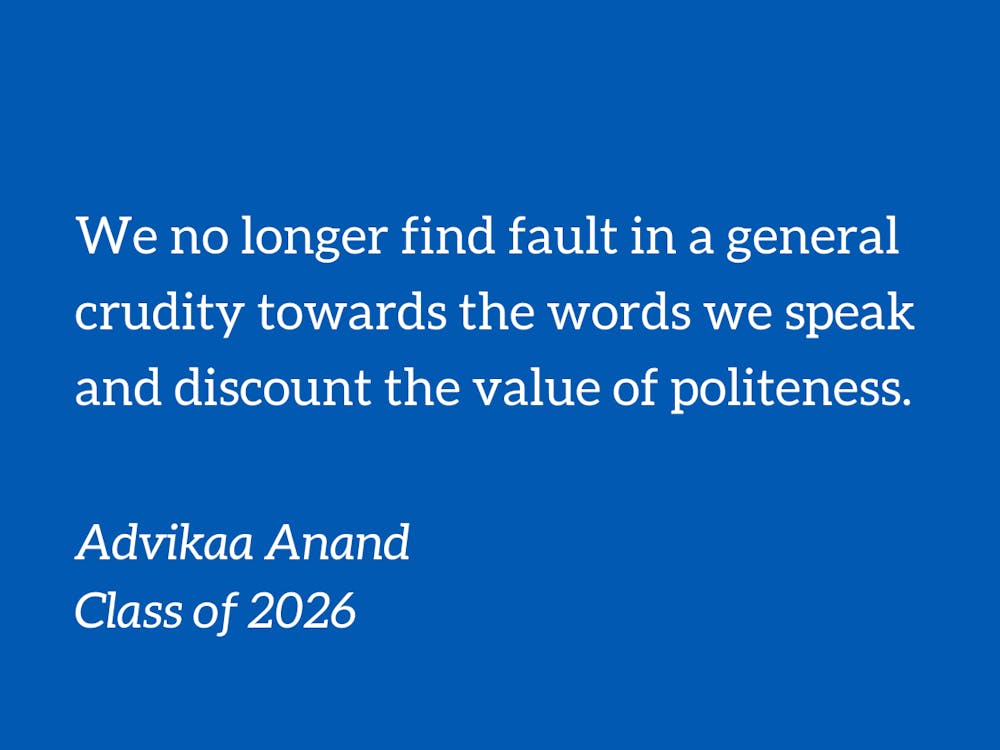My sister is a huge Taylor Swift fan. And while I am sick of her belting about short skirts and sneakers and Romeo and Juliet and love stories (but why are these lyrics so catchy?), I must admit that I am often struck by the profound nature of Taylor’s lyrics.
Take, for example, this lyric from the 10-minute version of her song All Too Well: “And you call me up again just to break me like a promise, so casually cruel in the name of being honest.”
While its clear call out of her millionth ex-boyfriend is amusing, its profound revelation about honesty and its tendency to border on cruelty is striking. After all, we live in a society where brutal, crushing honesty has become all too common. We no longer find fault in a general crudity towards the words we speak and discount the value of politeness.
While we criticize politicians, CEOS, and others in positions of high power for verbal callousness, we often dismiss it in our personal lives, characterizing it with euphemisms such as “speaking one’s mind” or in social media terms, “having no filter.”
There are merits to honesty, at least to a certain degree. Honesty is essential to strong relationships because it makes an individual more reliable, shows bravery and authenticity and builds trust.
But when honesty comes at the cost of respect, it no longer remains the best policy.
This thin line is increasingly blurred in our digital era where social media provides anonymous avenues for people to voice their opinions without fear of repercussions. In effect, it enables us to construct a virtual double and distance ourselves from our actual identities. When we know that our words are lost in a sea of comments, unkindness seems inconsequential, and so, we veer toward cruelty.
But in real life, with all of its breathing, painful glory, our faces are not shielded by the flimsy veneer of a static profile picture. Those in front of us must witness a multitude of emotions flash across our faces, and we are nakedly human.
In such a state of vulnerability — where our eyes latch onto subtle hints of judgment betrayed by others’ body language and tone, when our faces are shadowed by disappointment and disbelief — what we say matters.
How we make other people feel with our words matters and how we use our words to hold ourselves and others accountable matters because words — our primary vehicles of communication — are also tools essential to fostering human connection. Even though people may forget our intentions, no matter how genuine they are, the power of our words to make them feel wonderful or awful will stick with them.
And it is so easy to abuse this power. What we perceive as a mere slip of our tongue can make another stay up late at night, sobbing into their pillow as we evoke their deepest insecurities. One moment of carelessness on our end can make others question qualities that they consider fundamental to their existence.
Ultimately, we hold the power to change others with our words. After all, we each evolve into amalgamations of all the things others have said to us.
I am a collection of all my criticisms.
I still cringe at the way I draw my eights because my first-grade teacher said they look odd. I still shy away from the tones of my voice because someone told me I talk too loudly. These comments ebb into my subconscious and become criticisms roared by my brain when I gaze into the mirror.
Yet, I am also a collection of all my compliments.
I write for The Chronicle because years ago, my mother told me that my writing made her feel good. I pride myself in the optimism with which I view the world because my best friend told me it gives her hope. These words elicit the best in me and compel me to share it with others. They criss-cross across the plane of my existence to determine subtle quirks that culminate in making me unique.
If we can be molded by words, so too can we wield the power to mold others with them.
Will you use them to touch others or terrify them?
Will you use them to crush dreams or create them?
Will you use them to deliver pain or to deliver others from their pain?
You have the power to change lives with wisps of your breath — speak now, but remember, you may forever destroy someone’s peace.
Advikaa Anand is a Trinity sophomore. Her columns typically run on alternating Thursdays.
Get The Chronicle straight to your inbox
Signup for our weekly newsletter. Cancel at any time.
Advikaa Anand is a Trinity sophomore and an opinion managing editor of The Chronicle's 119th volume.

